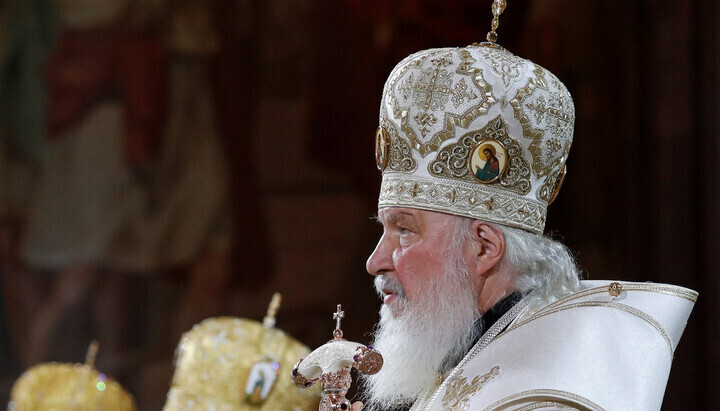UOC Legal Department: OCU is exerting illegal pressure on judiciary

The Legal Department of UOC gave a detailed assessment of the OCU's statement on the fate of the anti-church law being considered by the Constitutional Court.
In response to the statement of the Synod of the OCU of February 2, 2021, which claims about "possible inlawful influence" on the Constitutional Court in the case of constitutionality of the Law "On Amendments to Article 12 of the Law of Ukraine ‘On Freedom of Conscience and Religious Organizations’" of December 20, 2018 № 2662-VIII (on renaming), Archpriest Alexander Bakhov, head of the Legal Department of the UOC, explained who is really trying to influence the judicial system of Ukraine.
"The latest statement of the Synod of the OCU refers to certain ‘dissemination of information in open sources about possible illegal influence’," Archpriest Alexander Bakhov said in a comment published on the website of the UOC Legal Department. “It is obvious that the Synod ‘OCU’ is exerting illegal pressure on the judicial system with its statement. <...> Under the guise of concern for the independence of the judiciary, the OCU is putting pressure on the authorities and courts, provoking the authorities to violate Ukraine's international obligations, as well as the Constitution, by enforcing the law on renaming and forcing the Court to make the 'right decision' from their point of view."
According to the lawyer, the fairness of the OCU proceedings is not a concern, as it is the main beneficiary in this matter, and "if a legal decision is made <...> they will not receive the benefit they seek – the name ‘Ukrainian Orthodox Church’ and its property."
"Representatives of the OCU actually declare millions of believers of the Ukrainian Orthodox Church 'aggressors', while judges for some reason may prove to be ‘corrupt’ if they make a decision in favor of the part of Ukrainians loyal to the UOC," the clergyman said.
The head of the Law Dept also called the appeal to the UOC clergy to "follow the Tomos on the autocephaly of the Ukrainian Orthodox Church" a gross manipulation, because "there is no such name in the Tomos on autocephaly as 'Ukrainian Orthodox Church'. The text mentions only 'HCU' (Holy Church of Ukraine – translator’s note) and 'OCU' (Orthodox Church of Ukraine – translator’s note), but never 'UOC'. And the main thing – the very appeal to follow the Tomos for the OCU sounds blasphemous. In the Church we all follow Christ. He is our Shepherd, Whom we follow and strive for.”
"We live in a state governed by the rule of law and use all legitimate means of legal protection, that's why we go to courts. We consider the law on renaming unconstitutional, so there was an appeal to the Constitutional Court to challenge it. I am sure that the Constitutional Court would not have started considering this appeal, if there were no grounds," Archpriest Alexander Bakhov stated.
He reminded that the law was passed with violation and also violates the principle of autonomy of religious organizations (RO), according to which all ROs are independent in their management and the right to choose the name they consider necessary. This principle is also reflected in the European Convention on Human Rights and the case law of the European Court."
In addition, the law on renaming is discriminatory because “it violates the principle of equality of the RO before the law <...> when religious organizations are divided into good and bad, and Ukrainian citizens are considered second-class because they are believers of the UOC, whose administrative center is allegedly located in the ‘aggressor country’."
In conclusion, the head of the UOC Legal Department stressed that today there is "no regulatory act or law that would oblige the UOC to change its own name, even in Law 2662-VIII it is not specified anywhere."
We will remind while the scandalous law on compulsory renaming of the religious organizations, including the UOC, is being considered by the Constitutional Court, its norms were duplicated in the law on "transitional period" for Donbas. The explanations of the head of the Ministry of Internal Affairs about why this was done were also assessed by the UOC Legal Department.





